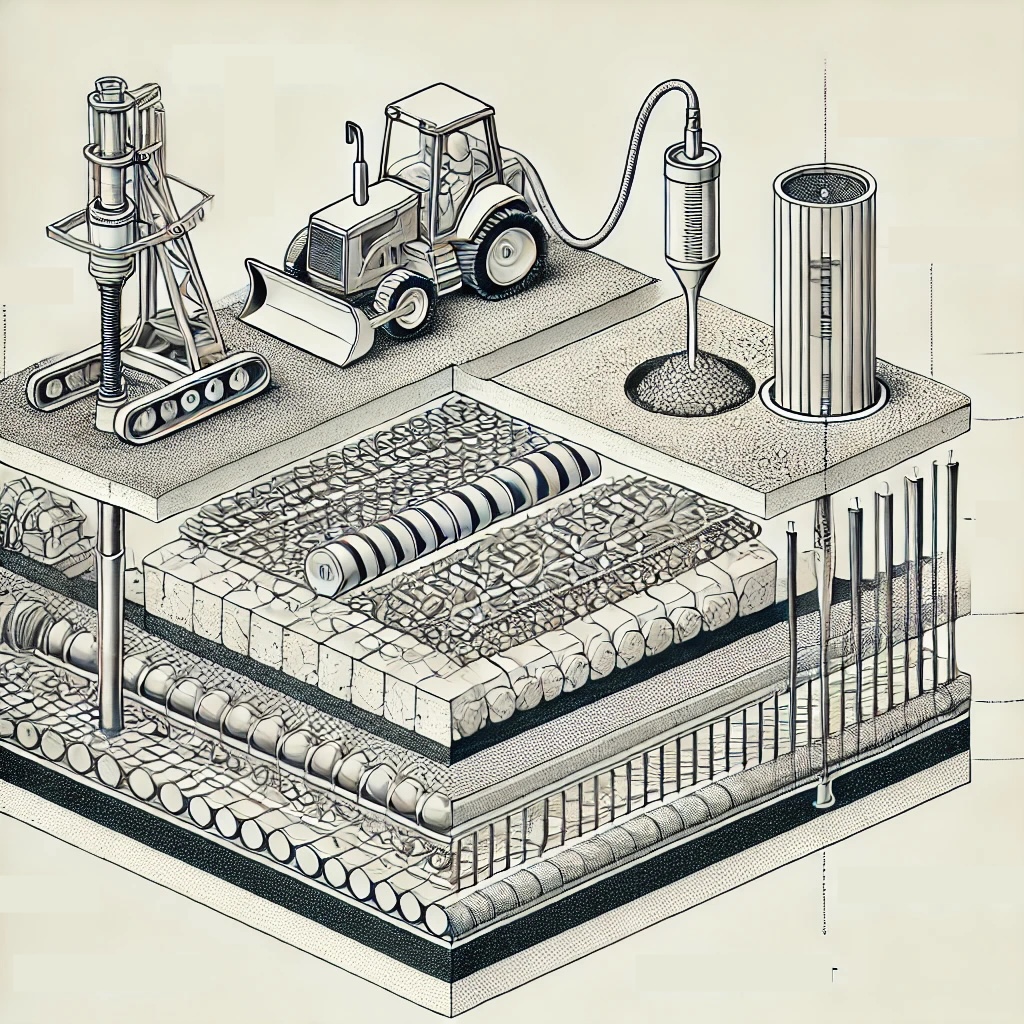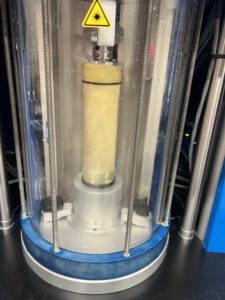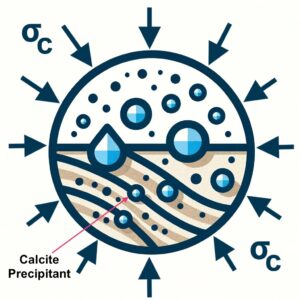
We conduct investigations into biocementation of soils for mitigation of ground failures. This involves the use of bacteria, enzymes, or other catalysts to create calcium carbonate cement in sands, essentially converting them from sand to rock! We are studying the dynamic mechanical response (capacity to handle cyclic/earthquake shaking) of the biocemented soils as they can serve to help mitigate shaking hazards such as lateral spreading, liquefaction (sand behaving like water), and other failure hazards (erosion, dust control), or establishing innovating building materials.
Current Projects (Selected)
Impacts of Confinement During Precipitation on the Dynamic Properties of Biocemented Granular Material:
- The objective of this project is to determine the relationship between confinement during cementation precipitation and the resulting impact on the shear modulus degradation of granular material. This will be determined by referencing it to cases where confinement occurred prior or after cementation precipitation.

Quantified Measurements of Shear Modulus Degradation of Biocemented Granular Material:
- This project is focused on quantifying the degradation of biocemented dynamic stiffness due to increasing stress (i.e., determining the yield behavior in stress space).

